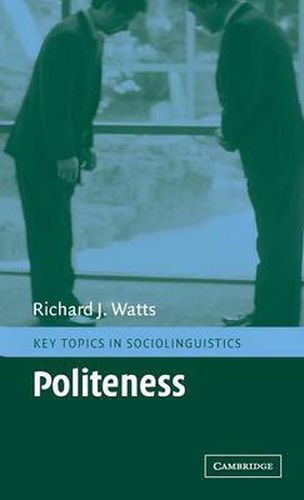Readings Newsletter
Become a Readings Member to make your shopping experience even easier.
Sign in or sign up for free!
You’re not far away from qualifying for FREE standard shipping within Australia
You’ve qualified for FREE standard shipping within Australia
The cart is loading…






During the last fifteen years, existing models of linguistic politeness have generated a huge amount of empirical research. Using a wide range of data from real-life speech situations, this new introduction to politeness breaks away from the limitations of current models and argues that the proper object of study in politeness theory must be commonsense notions of what politeness and impoliteness are. From this, Watts argues, a more appropriate model, one based on Bourdieu’s concept of social practice, is developed. The book aims to show that the terms ‘polite’ and ‘impolite’ can only be properly examined as they are contested discursively. In doing so, ‘polite’ and ‘impolite’ utterances inevitably involve their users in a struggle for power. A radically new account of linguistic politeness, the book will appeal to students and researchers in a wide range of disciplines, in linguistics and the social sciences.
$9.00 standard shipping within Australia
FREE standard shipping within Australia for orders over $100.00
Express & International shipping calculated at checkout
During the last fifteen years, existing models of linguistic politeness have generated a huge amount of empirical research. Using a wide range of data from real-life speech situations, this new introduction to politeness breaks away from the limitations of current models and argues that the proper object of study in politeness theory must be commonsense notions of what politeness and impoliteness are. From this, Watts argues, a more appropriate model, one based on Bourdieu’s concept of social practice, is developed. The book aims to show that the terms ‘polite’ and ‘impolite’ can only be properly examined as they are contested discursively. In doing so, ‘polite’ and ‘impolite’ utterances inevitably involve their users in a struggle for power. A radically new account of linguistic politeness, the book will appeal to students and researchers in a wide range of disciplines, in linguistics and the social sciences.